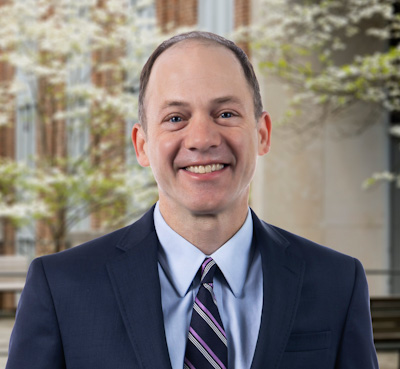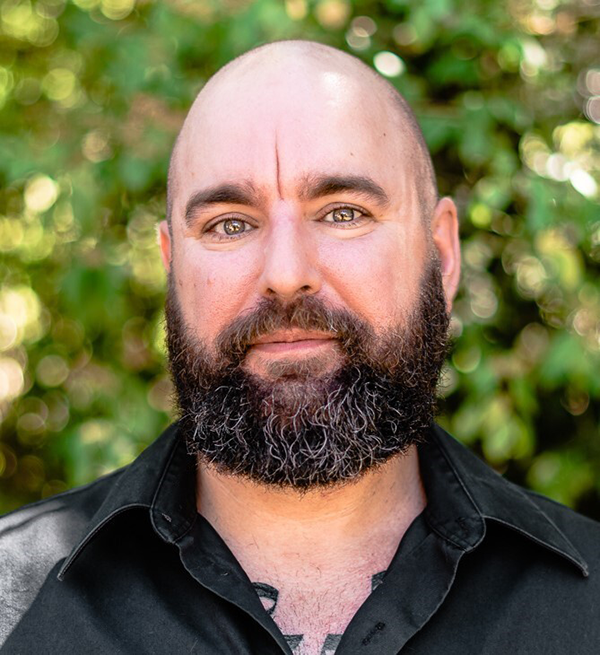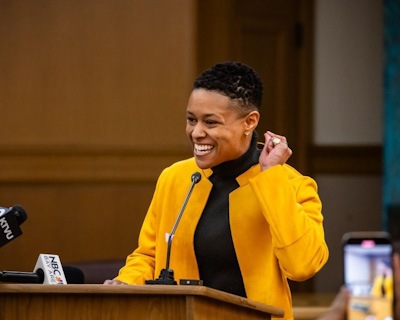Budding cannabis law courses are growing—but not fast enough

In 2022, legal cannabis was the country’s sixth biggest cash crop, at $5 billion annual wholesale value—more than potatoes or rice. (Image from Shutterstock)
Students in professor Jay D. Wexler’s cannabis law class at the Boston University School of Law shouldn’t have trouble remembering where the three-credit seminar is hosted in the Law Tower. He makes sure that it’s always hosted in Room 420.
Inspired by President Joe Biden’s call to review cannabis’ classification as a Schedule I controlled substance and many states’ moves to legalize weed for medical and general use, an increasing number of law schools around the country are offering cannabis law courses.
In the 2022-2023 academic year, 45 law schools—or about 22% of the 197 ABA-accredited schools—offered a combined total of 47 cannabis law courses, according to research by the Ohio State University Moritz College of Law’s Drug Enforcement and Policy Center. Although that’s an increase of 24 schools compared to four years earlier in the 2018-2019 academic year, some professors think that even more are needed.
“We’re still playing catch-up,” says Robert Mikos, a professor at the Vanderbilt University Law School who has taught a class on marijuana law and policy for more than 10 years.
Job opportunities abound
In 2022, legal cannabis was the country’s sixth biggest cash crop, at $5 billion annual wholesale value—more than potatoes or rice, according to the Leafly Cannabis Harvest Report 2022.
More than 10 years ago, only two states—Colorado and Washington—had legalized recreational marijuana. Now, the recreational use of marijuana is legal in 24 states and the District of Columbia as of February 2024, according to the Pew Research Center. Another 14 states allow the drug for medical use only.
 Robert Mikos: “If you’re a 3L, you might have encountered already constitutional law, criminal law, corporations or administrative law. Now, you get to put that into practice and put it all together in a very concrete way.” (Photo courtesy of Vanderbilt University)
Robert Mikos: “If you’re a 3L, you might have encountered already constitutional law, criminal law, corporations or administrative law. Now, you get to put that into practice and put it all together in a very concrete way.” (Photo courtesy of Vanderbilt University)
As the weed business grows, so does the need for lawyers. There are jobs in this field, and they extend far beyond representing cannabis dispensaries, says Mikos, the author of Marijuana Law, Policy, and Authority, one of only a handful of casebooks on weed law.
Opportunities include working for government regulatory agencies tasked with supervising the licensed cannabis industry, working as advocates and representing investors whose holdings touch the industry, such as real estate that a dispensary wants to rent.
“We desperately need lawyers who understand as much of this as possible because all of those areas need educated, top-flight lawyers to do the work well,” says Douglas Berman, a professor and executive director of the OSU Moritz College of Law’s Drug Enforcement and Policy Center.
Getting more students in law school courses can help fill the need, Wexler says.
“If you took a cannabis class, you are definitely head and shoulders above the person who hasn’t thought about this at all,” Wexler adds.
Tricky to teach
Cannabis law is complicated—and so is teaching it. Law schools often do not have the resources to add an elective course and often lack faculty with cannabis law experience. Plus, these courses still fight the stench of stigma, with some seeing the study of cannabis law as frivolous.
 Benjamin Varadi of Vermont Law asks his students to keep a basil plant alive to demonstrate the difficulty of cannabis farming. (Photo by Christina Hall)
Benjamin Varadi of Vermont Law asks his students to keep a basil plant alive to demonstrate the difficulty of cannabis farming. (Photo by Christina Hall)“Some students go into it like this will be Coachella for lawyers,” say Benjamin Varadi, an assistant professor at the Vermont Law and Graduate School. “But it’s really a deep dive into constitutional law.”
In the classroom, professors must balance theory with myriad practical and ethical issues embedded in the ever-changing state laws and federal regulation, they say. Intersections with cannabis law include constitutional law, taxes, intellectual property, real estate, the environment and workers’ rights.
Most cannabis law classes are directed at upper-level students.
“It’s a great capstone course,” Mikos says. “If you’re a 3L, you might have encountered already constitutional law, criminal law, corporations or administrative law. Now, you get to put that into practice and put it all together in a very concrete way.”
Different law schools approach the class from different angles.
While the Ohio State University’s 13-week course on marijuana law and policy is broad, Vermont Law’s popular three-credit cannabis law course focuses on blending agricultural law with business law and compliance issues.
To bring practical issues to life, Varadi’s students are required to grow a basil plant.
“Inevitably, someone’s cat eats it, or their roommate doesn’t water it,” adds Varadi, who practiced cannabis law in Oregon before moving to academia and is also working on a cannabis law textbook. “Those issues underscore issues with pests and employment.”
Social change
At the Southern University Law Center, a historically Black college, Marla Dickerson, managing fellow of the Cannabis Compliance, Law and Policy Institute, focuses on creating social change. Her course infuses cannabis law and medical marijuana law into the curriculum.
“There’s a lot of trauma around cannabis law for people of color. I want to destigmatize it,” says Dickerson, a past chair of the ABA Tort Trial & Insurance Practice Section’s Committee on Diversity and Inclusion and the vice chair of the section’s Cannabis Law & Policy Committee.
Black people are 3.6 times more likely than white people to be arrested for marijuana possession, despite similar usage rates, according to a 2020 report by the American Civil Liberties Union. Those disparities have worsened in most states in the past decade, according to the report.
“I am really passionate about increasing opportunities, especially for people of color,” Dickerson adds. “That’s the ultimate goal—empowering people, taking away the stigma and helping bring about social justice change.”
 Cat Packer: “It’s a dynamic new area of law, and you can be part of something that has an impact. I found that to be really exciting, and I continue to find it exciting.” (Photo by
Michael Rosati)
Cat Packer: “It’s a dynamic new area of law, and you can be part of something that has an impact. I found that to be really exciting, and I continue to find it exciting.” (Photo by
Michael Rosati)
In 2015, Cat Packer, a Black woman, took Berman’s seminar at the OSU Moritz College of Law. The course’s look at marijuana-related arrests and convictions shined a light on the war on drug’s impact on people of color, and she decided that cannabis law would become her life’s work.
Since graduation, Packer has exclusively worked in the cannabis law and advocacy space. She worked as the first executive director of Los Angeles’ Department of Cannabis Regulation; is currently the Drug Policy Alliance’s director of drug markets and legal regulation; and is the Cannabis Regulators of Color Coalition’s vice chair, focused on making an impact in communities of color.
“At the time when I was taking the course, folks were talking about this concept of equity in inequity as if it were an idea,” she says. “Now, we’ve seen governments acknowledge harms associated with cannabis policy in state after state. It’s a critical part of the conversation to ensure that folks are having their records expunged to ensure that there’s economic opportunity.”
Mikos and Packer add that cannabis law is quickly evolving.
“The law has changed dramatically in the lifetime of the students. It’s really remarkable,” Mikos says.
“It’s a dynamic new area of law, and you can be part of something that has an impact,” Packer adds. “I found that to be really exciting, and I continue to find it exciting.”



